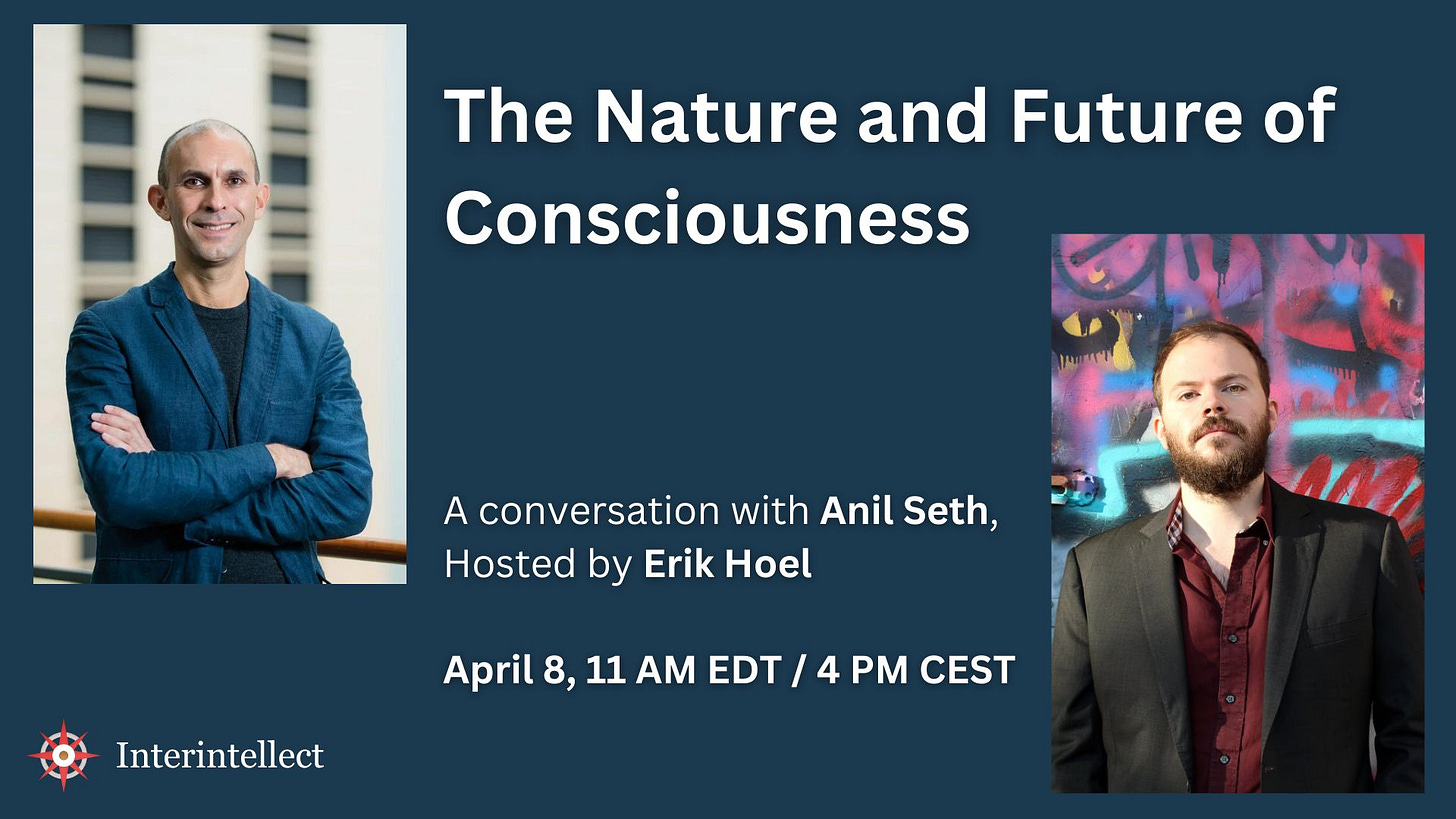Richard Dawkins a Christian? Beethoven's genes bad at music? Smartphones not behind depression? What?
Desiderata #23: links and commentary
The Desiderata series is a regular roundup of links and thoughts, as well as an open thread and ongoing Ask Me Anything in the comments.
1/10. Since the last Desiderata, The Intrinsic Perspective published:
(🔒) Is it moral to lock writing behind paywalls? A question that answers itself.
The end of (online) history. Hegelian dialectics for the 21st Century.
How The New York Times beat me. In publishing, the house always wins.
2/10. Please join me as I chat with Anil Seth about the current state of consciousness research at an Interintellect Salon on April 8th. Anil is one of the best of this generation of neuroscientists working on consciousness, he knows everything about the field, he has a great lab at the University of Sussex, and writes popular books as well, like his most recent Being You.
It’s a Zoom event essentially like a big conversation with plenty of opportunity for you to jump in (if you like, no pressure). It is hosted by InterIntellect, a third-party organization that puts salons like this together, so it does require paying for a ticket (their rule, not mine).
But if you are a paid subscriber to The Intrinsic Perspective, I wrangled some free tickets. It’s first come first serve, and there’s a limited supply. To make use of them, scroll down to the bottom (the last Desiderata entry) to find a code that should make the event free to register for (until the spots run out).
3/10. A funny study came out last week in the journal Current Biology: “Notes from Beethoven’s genome.” Previously, other researchers had gotten ahold of a strand of Beethoven’s hair and sequenced his genome to understand his medical conditions. But we can do a lot more than that now.
Now-a-days, researchers do genome-wide association studies (GWAS) to try to correlate the many small effects of gene combinations on some trait, trying to nail down its degree of biological heredity. So far, the surprising overarching result from such studies is that a lot of traits don’t come off as highly heritable with this method. Of course, almost every trait is heritable to some degree, but in an age of increased genetic knowledge it’s interesting that most modern studies languish in the low percentages where effects aren’t super relevant at an individual level. Why this is is an open question.
Whatever the reason, it’s why Beethoven’s genes appear to be bad at music. While the current GWAS knowledge for musicality is pretty limited (as the authors of the paper acknowledge), applying what we do know yields a surprising result: Beethoven would not score high on the “predisposed to musicality” axis.
How much should be read into this? Certainly such studies are not disproof that there is, at a statistical level, causal relationships between high-level complex traits (like musicality) and your genome. There almost certainly is. But it’s a good reminder that, so far, GWAS have not provided much evidence to support pure biological determinism of complex traits like musical ability.
I would love to a similar analysis done on other historic examples of great talent. Isn’t Einstein’s brain floating around somewhere, after being rediscovered in a mason jar kept in some journalist’s basement for twenty years?
4/10. Richard Dawkins, one of the most prominent New Atheists and author of books like The God Delusion, has declared himself a “cultural Christian,” saying that he “feels at home in the Christian ethos.” This led to many people pontificating on his new “coming out” as if he himself converted.






